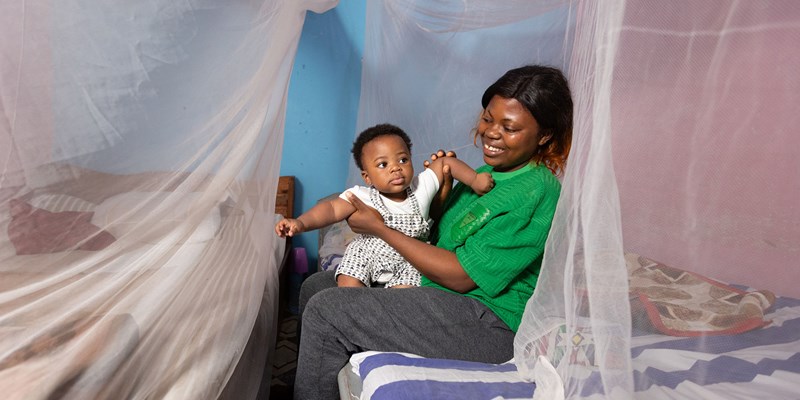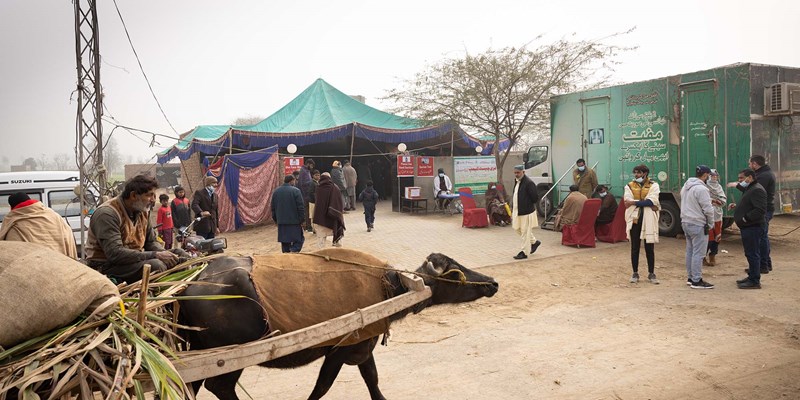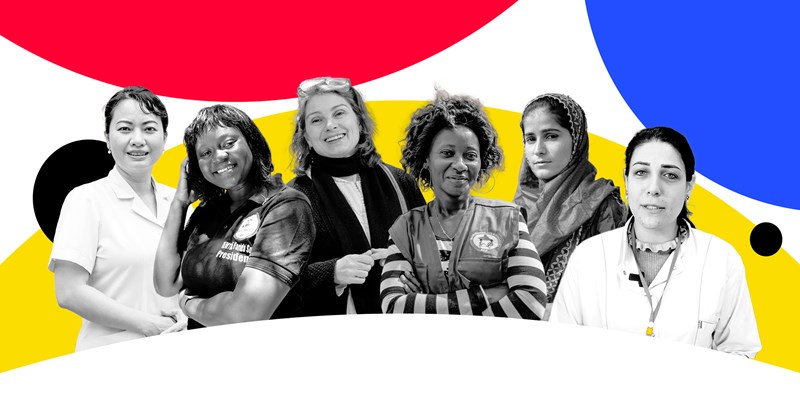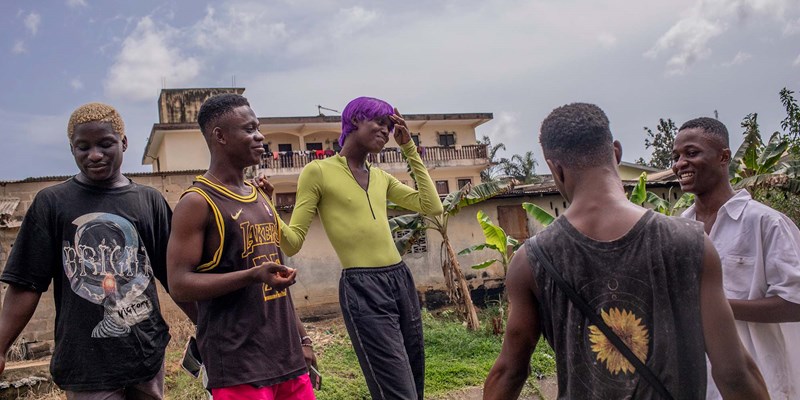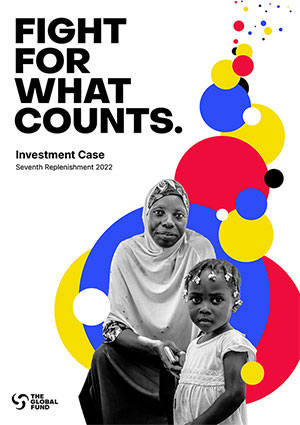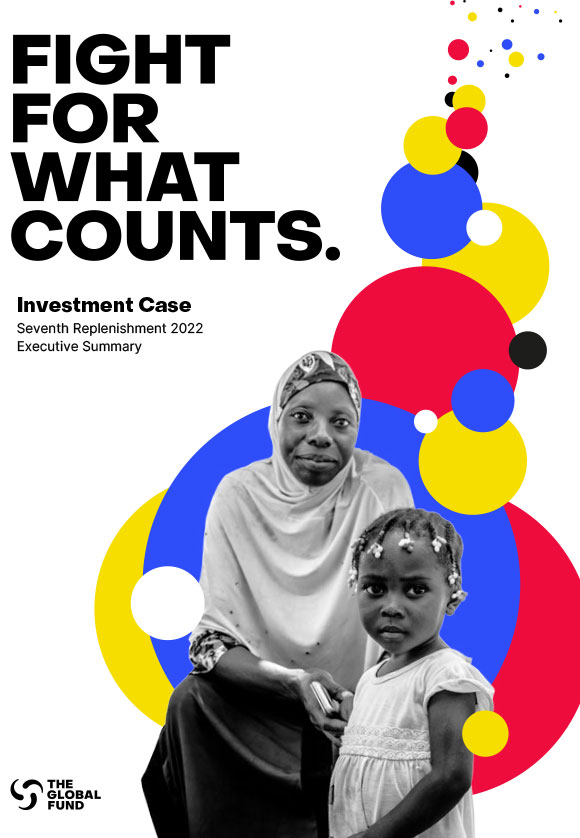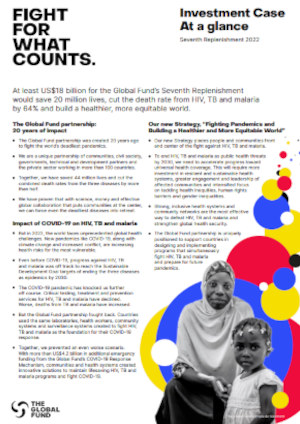Reaching the Last Mile Welcomes Collective Commitment to Boost Support to Community Health Workers
03 December 2023
download in عربي
DUBAI – Reaching the Last Mile – a portfolio of global health programs, investments, and initiatives working to end preventable diseases that affect the world’s most vulnerable communities– welcomes the commitment made by a coalition of partners to accelerate professional community health worker programs.
In a collective announcement today at the Reaching the Last Mile Forum, held on the sidelines of the first-ever COP28 Health Day in the United Arab Emirates, the following partners renewed and strengthened their joint support for community health workers: the Global Fund to Fight AIDS, Tuberculosis and Malaria (the Global Fund), the Africa Centers for Disease Control and Prevention (Africa CDC), Africa Frontline First, the Children's Investment Fund Foundation (CIFF), ELMA Philanthropies, the Johnson & Johnson Foundation, the Mastercard Foundation, the Skoll Foundation, The Rockefeller Foundation, the U.S. President’s Emergency Plan for AIDS Relief (PEPFAR), the U.S. President’s Malaria Initiative (PMI), U.S. Agency for International Development (USAID) and United Nations Children's Fund (UNICEF).
“Community health workers are at the heart of resilient and inclusive health systems, and a vital bridge to delivering health for all,” said Nassar Al Mubarak, Chief Executive Officer at Reaching the Last Mile. “Today’s announcement is not only a recognition of their role and value, but an investment in ensuring countries and communities can meet the health challenges of today and tomorrow.”
Community health workers expand access to essential healthcare and serve as vital first responders to disease outbreaks and climate threats in the world’s hardest-to-reach communities. Most of them are not adequately supported, equipped, protected, or even paid. Most community health workers are women and peers of marginalized populations, who often face stigma, discrimination, or criminalization.
“Throughout my life, and especially as president of Liberia, I have seen the destructive darkness that disease outbreaks can bring to a country,” said H.E. Ellen Johnson Sirleaf, former president of Liberia. “I have also witnessed the reviving light that community health workers can bring to a devastated nation. Today’s commitment represents a strong step forward in our journey to inspire hope, save lives and bring health to all.”
In today’s announcement, which builds on growing momentum for community health, partners committed to collective and coordinated investments and affirmed governments’ leadership role in setting health priorities. The announcement also issues a call-to-action for others to join the momentum to scale community health programs, including to provide professional community health workers with the salaries, supplies, skills, and supervision they need to achieve their full potential. Further, in addition to the contribution by other partners who are supporting community health worker programs, the Global Fund announced funding of US$900 million for the next 3 years, 74% of which will be invested in African countries.
“Community health workers play a crucial role in enhancing prevention, detection, and response to outbreaks, as well as maintaining HIV, TB and malaria services for rural and hard-to-reach populations,” said Peter Sands, Executive Director of the Global Fund. “Our increased commitment to supporting them is key to continue building resilient and sustainable systems for health and saving lives.”
Today’s announcement builds on recent collaborative efforts to support community health workers, including the Africa Frontline First Catalytic Fund, the African Union’s commitment to recruit 2 million community health workers, the Africa CDC’s New Public Health Order, the Community Health Delivery Partnership and the Monrovia Call to Action.
“Strong community health systems in every community are essential to provide accessible, quality, and cost-effective prevention and treatment services, including in emergency situations,” said Dr. Jean Kaseya, Director General of the Africa CDC. “The collective commitment we join today represents health, well-being, and security for all of our citizens. We welcome the support of our partners and invite others to join us as we walk towards a healthier future for all.”
Community health workers that are adequately supported, protected, and integrated into the health system can bring essential healthcare to the world’s most marginalized communities, making them more resilient to climate shocks and disease outbreaks. Partnerships that invest in professional community health workers move us closer to a world where no one is left behind.
###
About Reaching the Last Mile
Reaching the Last Mile (RLM) is a portfolio of global health programs, investments, and initiatives working towards disease elimination that is driven by the philanthropy of His Highness Sheikh Mohamed bin Zayed Al Nahyan, President of the UAE. Through its partnerships and programs, RLM provides treatment and preventative care in communities that lack access to quality health services, with a focus on last-mile disease elimination.
RLM’s mission represents His Highness’s dedication to ending preventable diseases that affect the world’s poorest and most vulnerable communities and helping millions of children and adults live healthy, dignified lives.
About Africa CDC
Africa CDC is a continental autonomous health agency of the African Union established to support public health initiatives of Member States and strengthen the capacity of their public health institutions to detect, prevent, control and respond quickly and effectively to disease threats, based on science, policy, and data-driven interventions and programmes.
About Africa Frontline First
Africa Frontline First is an Africa-led collaborative initiative that mobilizes resources to strengthen community health programs and scale 200,000 professional community health workers. Under the Championship of Her Excellency Ellen Johnson Sirleaf, Africa Frontline First works in partnership to close the community health funding gap in Africa and reach 100 million people with essential care by 2030.
